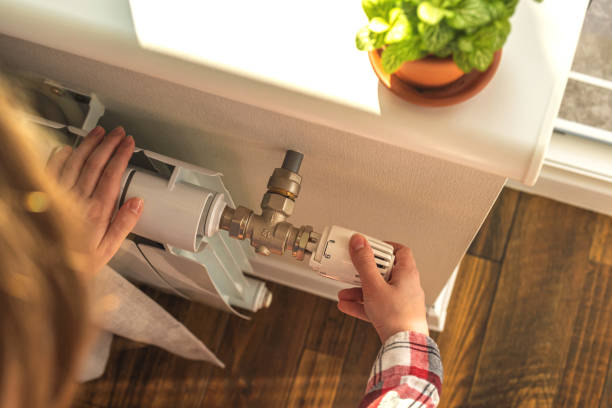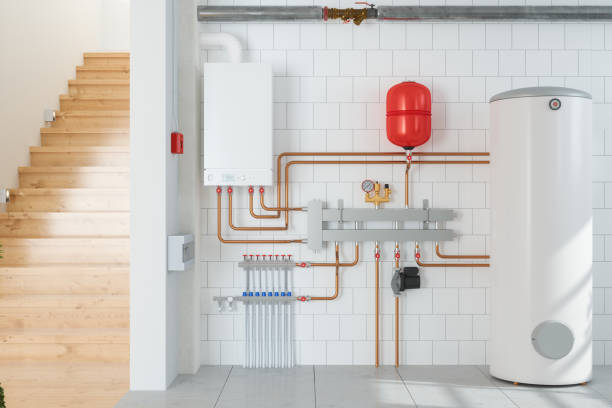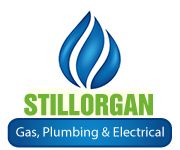
03/08/2023 by stillorgangas 0 Comments
Winter Energy Savings: 5 Practical Ways to Cut Central Heating Costs
Adopting energy-efficient habits and understanding the impact of heating on costs and the environment are steps towards a more sustainable and budget-friendly lifestyle. Read this article to better understand the practical ways to cut central heating cost. For more information, do not hesitate Stillorgan Gas, Plumbing and Electrical.
Introduction

Reducing central heating expenditure is important for both financial savings and environmental responsibility. As one of the significant energy consumers in homes, efficient heating practices can result in substantial reductions in the cost of utility bills. By implementing practical strategies such as proper thermostat settings, weatherproofing and regular maintenance, homeowners can optimize their heating systems and avoid unnecessary energy waste. Reduced energy consumption not only translates into monetary benefits but also contributes to a greener planet by reducing greenhouse gas emissions. Adopting energy-efficient habits and understanding the impact of heating on costs and the environment are steps towards a more sustainable and budget-friendly lifestyle.
Understand Your Heating System

Understanding your heating system is fundamental to optimizing its efficiency and reducing energy expenditure. A central heating system typically consists of four main components: a heat source, distribution system, control system and heat emitters. The heat source can be a boiler, furnace or heat pump, which generates the heat. The distribution system, including pipes or ductwork, carries heated air or water throughout the home. The control system, such as a thermostat, regulates the temperature by turning the heat source on or off. Finally, heat emitters, such as radiators or vents, release heat into living spaces.
Different heating systems, such as gas, electric, or radiant heating, work in specific ways. Gas heating uses a gas-fired burner to heat air or water, while electric heating relies on electric resistance elements to generate heat. Radiant heating, on the other hand, heats objects and surfaces directly, providing a comfortable and energy-efficient option.
Knowing the specifications of your heating system is essential for efficient use. By understanding its type, capacity and capabilities, you can set appropriate thermostat settings, identify potential maintenance needs and discover opportunities for energy-saving improvements. Regular maintenance and timely repairs also play an important role in ensuring optimal operation of your system. By familiarizing yourself with your heating system, you can make informed decisions that lead to cost-effective and eco-friendly heating practices, ultimately saving both money and energy.
Conduct a Home Energy Audit

A home energy audit is an important process that helps homeowners identify areas of energy waste that lead to high utility bills and unnecessary environmental impact. By conducting an energy audit, you gain valuable insight into the overall energy efficiency of your home, enabling you to make targeted improvements.
A DIY energy audit involves systematically examining various aspects of your home. Begin by inspecting doors, windows and walls for air leaks, which can be sealed with weatherstripping or caulk. Check insulation levels in the attic, walls, and floors to make sure they meet recommended standards. Assess the efficiency of your heating and cooling systems, including air filters and ductwork. Monitoring energy use through utility bills and checking appliance efficiency can also provide valuable information.
For a more comprehensive and accurate assessment, consider hiring a professional energy auditor. They use specialized equipment such as thermal cameras and blower door tests to locate hidden air leaks and insulation problems. A professional audit provides detailed reports and specific recommendations tailored to the specific needs of your home.
Common problem areas identified during audits include shabby windows and doors, inadequate insulation, and outdated heating and cooling systems. By addressing these issues, homeowners can significantly improve energy efficiency, reduce heating and cooling expenses, and create a more comfortable and sustainable living environment. For any of your needs get in touch with Stillorgan Gas and Plumbing.
Implementing Cost-Effective Heating Practices

Set an optimal temperature: Finding the right thermostat settings can have a significant impact on both comfort and energy savings. For most homes, the recommended temperature during the winter months is around 68°F (20°C). However, this may vary depending on personal preferences and the number of occupants. Lowering the thermostat just a degree or two can result in significant savings on heating costs without compromising on comfort. Additionally, consider lowering the temperature further at night or when the house is unoccupied, using blankets and warm clothing to stay comfortable.
Use a programmable thermostat: Programmable thermostats offer flexibility and automation, making them an excellent investment for efficient heating. These devices allow homeowners to set different temperature schedules based on daily routines. For example, you can program the thermostat to lower the temperature when everyone is away at work or school and raise it before everyone gets home. This ensures that the heating system operates only when necessary, thereby preventing energy wastage. Some advanced models even come with smartphone apps that enable remote temperature control, so you can adjust settings while you're away from home.
Emphasize the benefits of zone heating: Zone heating allows homeowners to heat specific areas of the home as needed, rather than maintaining a uniform temperature throughout the property. This can be achieved by using different thermostats for different zones, or by using space heaters or electric blankets. For example, if you spend most of your time in the living room in the evenings, you can focus the heating on that area and keep the rest of the house cool. By doing so, you reduce overall energy consumption and
Weatherproofing and Insulation
Weatherproofing and insulation are important aspects of improving energy efficiency in your home. Sealing air leaks around windows, doors and vents prevents warm air from escaping and cold air from entering, reducing heating demand. Insulating attics, walls, and floors can effectively trap heat inside the home, prevent it from escaping, and maintain a comfortable temperature. Weatherstripping and caulking play an important role in preventing heat loss through gaps and cracks in doors and windows. By implementing these measures, homeowners can create more energy-efficient and comfortable living spaces, as well as save on heating expenses and reduce their environmental impact.
Call Us Today 087 460 8501
Regular Maintenance and Servicing of Gas Boiler
Regular maintenance is essential for optimum heating system performance. Over time, dust, dirt and debris accumulate, hindering efficiency and increasing energy consumption. Regularly cleaning and changing filters improves air circulation, reduces pressure on the system and can prevent potential malfunctions. Proper maintenance ensures that all components function smoothly, reducing wear and tear and increasing the life of the system. In addition to preventing costly repairs, a well-maintained heating system operates at peak efficiency, resulting in significant cost savings on the energy bill. By investing in regular maintenance, homeowners can get reliable heating, lower costs and maximize the longevity of their systems.
Conclusion
Finally, implementing Stillorgan Gas' five practical strategies can significantly reduce central heating expenses. By understanding your heating system and conducting a home energy audit, you can identify areas of energy waste and make targeted improvements. Setting an optimum thermostat temperature and using a programmable thermostat enables you to control the heating efficiently. Weatherproofing and insulation, along with weatherstripping and caulking, prevent heat loss and keep your home comfortable. Regular maintenance of Stillorgan gas ensures optimum system performance, which leads to cost savings and reduced environmental impact. Adopt these strategies today and start enjoying the financial and environmental benefits while staying warm and comfortable all winter long. Take action with Stillorgan gas and save on your heating costs!

Comments
Leave a comment